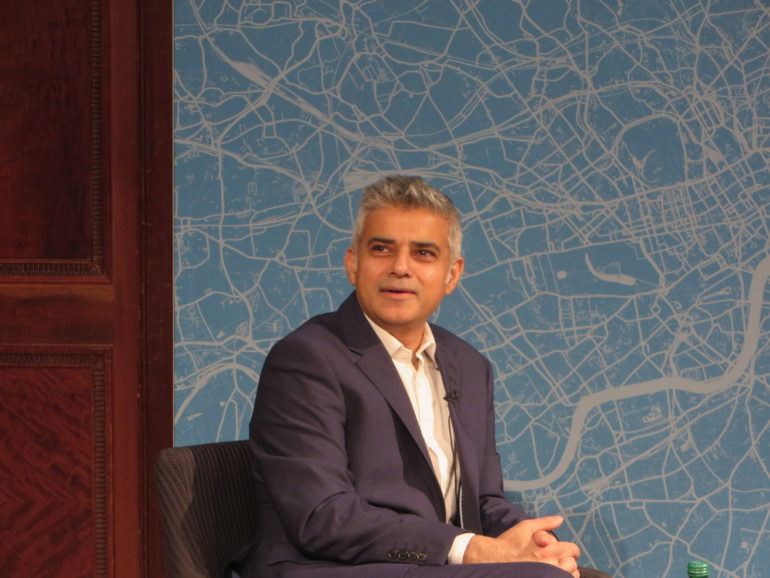Analysis commissioned by London mayor predicts ‘lost decade’ of slump and lower employment with hard Brexit
A no-deal Brexit could cause the UK to lose half a million jobs and nearly £50bn in investment by 2030, according to an economic forecast commissioned by the mayor of London, Sadiq Khan.
The report, which models five possible scenarios for leaving the EU ranging from a near-status quo situation to leaving on World Trade Organisation terms without any transition agreement, warns that the worst option could be a “lost decade” of economic slump, reports The Guardian.
The analysis by Cambridge Econometrics predicts that a no-deal Brexit could shed as many as 87,000 jobs in London alone, with the capital’s economic output 2 per cent lower in 2030 than what would be expected under a soft Brexit.
“If the government continue to mishandle the negotiations we could be heading for a lost decade of lower growth and lower employment,” Khan said. “The analysis concludes that the harder the Brexit we end up with, the bigger the potential impact on jobs, growth and living standards.”
The Labour mayor was a strong supporter of the remain campaign and has since vigorously argued for the UK to stay in the EU’s single market and customs union, or for London to be granted its own deal, especially on maintaining rules on banking and financial services.
The report concludes that while every Brexit outcome would harm the UK economy, “the harder the Brexit, the more severe the economic damage could be”.
It says that while London would suffer in a no-deal departure, it would fare better than the rest of the UK – nationally, the most damaging sort of Brexit would see economic output up to 3.3 per cent lower in 2030 than would be the case with the status quo, which would widen inequalities.
Khan commissioned the report after the Brexit secretary, David Davis, told MPs he had not, as long believed, ordered central government impact assessments into the potential economic effects of Brexit.
Khan said it was “astonishing” that Theresa May’s government had failed to do any analyses.
He said: “I’ve released these impact assessments because the British people and our businesses have a right to know the likely impact of the various options the government are considering on their lives and personal finances.
“This new analysis shows why the government should now change its approach and negotiate a deal that enables us to remain in both the single market and the customs union.”
The worst of the five scenarios modelled – departure in March 2019 with no deal or transition arrangements – would lead to 482,000 fewer jobs across the entire UK and a loss of £46.8bn in investment by 2030, the report says.
With no arrangement for the service sector, financial and professional services would be worst affected, shedding nearly 120,000 jobs, with 92,000 fewer in science and technology and 43,000 fewer in construction.
The report says that even a softer option, such as the UK remaining in the single market but leaving the customs union after a transition period, could end up with 176,000 fewer jobs by 2030 and a loss of £20bn in investment.
Khan and the report’s authors stressed that the figures were indicative, and that a huge number of factors could affect what happens, but that it was the first time such an analysis had been undertaken.


